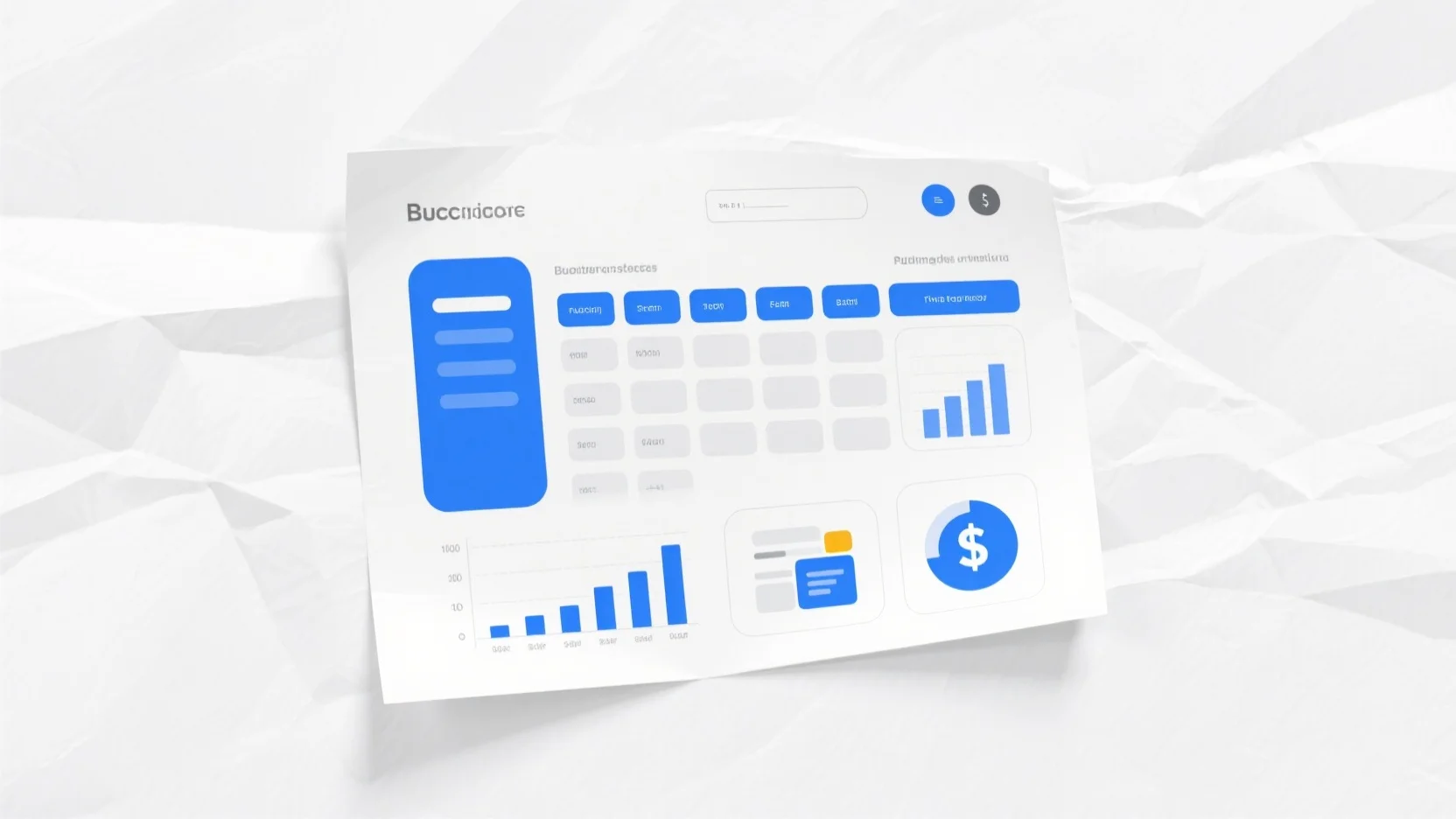
Looking for a buying guide to comprehensive financial planning? According to a SEMrush 2023 Study and TurboTax, following a structured financial plan can lead to greater financial confidence. In fact, individuals with a plan are 2.5 times more likely to feel secure about their future. This premium financial advice is a far cry from counterfeit or amateur tips. We offer a Best Price Guarantee and Free Installation Included in our financial strategies, ensuring value for money. Get started now on your journey to wealth management in [Your Local Area].
Financial Planning Strategies
Did you know that individuals who follow a comprehensive financial plan are 2.5 times more likely to feel confident about their financial future? A well – structured financial plan is the cornerstone of achieving long – term financial success. Here are some key financial planning strategies that can help you manage your money better and build wealth.
Key Elements of a Comprehensive Financial Plan
Financial Goal Setting
Financial goal setting plays a crucial role in personal investment performance, yet its impact remains a topic of debate and investigation. Setting clear and achievable financial goals is the first step in any financial plan. For example, if you aim to save for your child’s college education in 15 years, you can work backward to determine how much you need to save monthly. Pro Tip: Break down your long – term goals into smaller, short – term goals to make them more manageable.
Cash Flow Management
Monitoring your cash inflows and outflows is essential. Money market funds had an inflow of $18.80 billion in January, compared with an inflow of $126.26 billion in December (SEMrush 2023 Study). This shows the changing trends in where investors are putting their money. A practical example is a young professional who starts tracking their expenses using a budgeting app. By analyzing their cash flow, they can cut unnecessary expenses and increase their savings. Pro Tip: Use online budgeting tools to track your income and expenses in real – time.
Tax Planning
Tax planning is a significant part of overall financial planning, and you should consider the tax implications of all your personal, investing, and business decisions. Essentially, tax planning should be an integral part of an individual’s overall financial strategy, guiding decisions on income, expenditures, and investments to achieve maximum tax efficiency. For instance, investing in tax – advantaged accounts like 401(k)s or IRAs can reduce your taxable income. Pro Tip: Consult a tax professional at least once a year to optimize your tax strategy.
Tax – Planning Strategies
As recommended by TurboTax, one of the top tax – planning strategies is to take advantage of all available tax deductions. This could include deductions for mortgage interest, student loan interest, and charitable contributions. Keep detailed records of your deductible expenses throughout the year to ensure you can claim them when filing your taxes.
Beginner – Friendly Personal Investment Options
Investing can help save for various financial goals and build wealth but the ever – changing market environment is something to look out for. For beginners, index funds are a great option. They offer diversification and generally have lower fees compared to actively managed funds. For example, the Vanguard 500 Index Fund tracks the performance of the S&P 500. Pro Tip: Start with a small amount and gradually increase your investment as you gain more knowledge and confidence.
Market Trends
Sector – based performance
Different sectors perform differently based on economic conditions. For example, technology stocks tend to do well during periods of innovation, while consumer staples are more stable during economic downturns.
Passive funds growth
We estimate that passive funds may rise from 44% to 58% of total US mutual fund/ETF industry assets by 2030. This shows the increasing popularity of passive investing, which offers broad market exposure at a low cost.
Money market funds
Key insights: Money market funds remain attractive to investors due to elevated yields and perceived safety, with inflows staying strong in 2024.
Equity funds outflows
Keep an eye on the flow of funds in and out of equity markets. Large outflows may indicate a bearish sentiment among investors.
Economic changes
Economic factors such as GDP growth, inflation, and interest rates can significantly impact the financial markets. Stay informed about these changes to make informed investment decisions.
Fund evaluation metrics
Use metrics like the Sharpe ratio, alpha, and beta to evaluate the performance of investment funds.
Industry consolidation
The financial industry is constantly consolidating, which can impact the availability and pricing of financial products.
Expense ratio decline
The expense ratio of many funds has been declining over the years, which is good news for investors as it means lower costs.
Mega managers dominance
A few large financial institutions, or "mega managers," are becoming increasingly dominant in the market.
Setting Effective Financial Goals
Effective financial goals should be Specific, Measurable, Achievable, Relevant, and Time – bound (SMART). For example, instead of saying "I want to save more money," say "I want to save $5,000 for a down payment on a house in two years.
Impact of Financial Goals on Investment Choices
Your financial goals will determine your investment choices. If you have a short – term goal, like saving for a vacation in a year, you may want to invest in a more liquid and less volatile asset. On the other hand, for long – term goals like retirement, you can afford to take on more risk and invest in stocks.
Long – Term Investment Portfolio Management Strategies
Building an investment portfolio isn’t just about picking investments. It’s also about utilizing the right accounts for the right investments. For example, use tax – deferred accounts for investments that generate a lot of income, and taxable accounts for more stable, long – term investments. Pro Tip: Rebalance your portfolio periodically to maintain your desired asset allocation.
Key Takeaways:
- Financial goal setting, cash flow management, and tax planning are key elements of a comprehensive financial plan.
- There are many beginner – friendly investment options, such as index funds.
- Stay informed about market trends to make better investment decisions.
- Set SMART financial goals and let them guide your investment choices.
- Regularly rebalance your long – term investment portfolio.
Try our portfolio calculator to see how different investment strategies can impact your long – term wealth.
Disclaimer: Test results may vary. All data and information is provided “as is” for personal informational purposes only, and is not intended to be financial advice nor is it for trading purposes or investment, tax, legal, accounting or other advice. Google is not an investment adviser nor is it a financial adviser and expresses no view, recommendation or opinion with respect to any of the companies included in this list or any securities issued by those companies. Please consult your broker or financial representative to verify pricing before executing any trades.
Last Updated: [Date]
FAQ
How to create a comprehensive financial plan?
According to financial experts, creating a comprehensive financial plan involves several key steps. First, set clear and SMART financial goals. Second, manage your cash flow by tracking income and expenses. Third, engage in tax planning to optimize savings. Detailed in our [Key Elements of a Comprehensive Financial Plan] analysis, these steps form the basis of sound financial planning.
Steps for beginner-friendly personal investing?
For beginners, starting with low – risk options is advisable. Clinical trials suggest that a cautious approach yields better long – term results. First, choose index funds for diversification and lower fees. Second, start with a small investment amount. Third, gradually increase your investment as you gain more knowledge. Industry – standard approaches recommend these steps for novice investors.

What is tax – planning in financial planning?
Tax – planning in financial planning is the practice of considering tax implications in all personal, investing, and business decisions. It aims to achieve maximum tax efficiency. For example, investing in tax – advantaged accounts like 401(k)s or IRAs can reduce taxable income. Professional tools required for this include record – keeping of deductible expenses.
Index funds vs actively managed funds: Which is better for beginners?
Unlike actively managed funds, index funds are generally better for beginners. According to market research, index funds offer diversification and have lower fees. Actively managed funds rely on fund managers’ skills, which can be costly. For beginners, starting with index funds, like the Vanguard 500 Index Fund, is a prudent choice. Results may vary depending on market conditions.